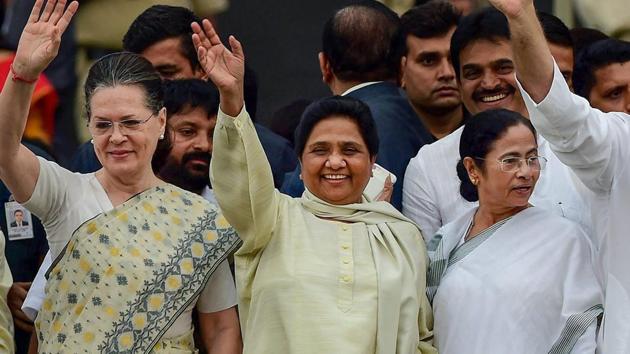Indian women leaders trolled more than those in US, UK, says report
Amnesty revealed that of the 95 women politicians, 44 were from the Bharatiya Janata Party (BJP), 28 were from the Indian National Congress (INC), and 23 were from other parties such as Aam Aadmi Party, Apna Dal, All India Anna Dravida Munnetra Kazhagam, All India Trinamool Congress, Bahujan Samaj Party, Communist Party of India (Marxist-Leninist) among others.
Indian women politicians experience substantially higher online abuse than their United Kingdom and United States of America counterparts, a first-of-its-kind report that tracked digital abuse over Twitter around last year’s general elections has revealed.

Amnesty India International-International Secretariat analysed 114,716 tweets that mentioned 95 women politicians between March and May 2019 — the elections were conducted over April and May — and found that 13.8% of them were abusive and problematic.
By comparison, in 2017, Amnesty International and Element AI, a software company, surveyed millions of tweets received by 778 journalists and politicians — all women — from the United Kingdom and the United States of America, representing a variety of political views. Among their top findings, 7.1% of tweets sent to the women in the study were problematic or abusive, amounting to 1.1 million tweets over 365 days.
‘Troll Patrol India: Exposing Online Abuse Faced by Women Politicians in India’ includes Twitter’s response as well as Amnesty’s recommendations. The report did not name the women.
Amnesty revealed that of the 95 women politicians, 44 were from the Bharatiya Janata Party (BJP), 28 were from the Indian National Congress (INC), and 23 were from other parties such as Aam Aadmi Party, Apna Dal, All India Anna Dravida Munnetra Kazhagam, All India Trinamool Congress, Bahujan Samaj Party, Communist Party of India (Marxist-Leninist) among others.
The study relied upon the perception of decoders who were shown tweets with the username obscured, and were then asked questions about whether the tweets were problematic or abusive, and if so, whether they revealed misogynistic, casteist or racist abuse, or other types of violent threats. Most of the tweets analysed were in English.
The report found that the more marginal the identity, the higher the frequency of problematic and abusive tweets. The seven Muslim women among the 95 experienced 55.5% more problematic or abusive content compared to others. Women from marginalised castes (total 19) received 59% more casteist slurs than women from general castes.
According to the women politicians HT spoke to as well as those quoted in the report, the issue of online abuse cuts across party lines.
“Everyone suffers trolls, but for women, it is taken to another level. It’s all unrelated to politics and very personal things (are said) that men are never asked,” Shazia Ilmi, vice president Delhi BJP and spokesperson told HT.
“I was told that ‘I have no right to speak as a Muslim woman’. Rape threats were routine, as were character assassinations, insinuations about my sexual relationships with older men,” the report quoted Hasiba Amin, INC’s national convener, social media, as saying.
CPI (ML) Polit Bureau member Kavita Krishnan told HT that it was incorrect to refer to this abuse as trolling. “What we face is an organised, concerted campaign of threats and abuse, unleased by the ruling party, led specifically by persons holding public office — a governor — various BJP MPs and MLAs, and handles followed by the Prime Minister and various cabinet ministers.”
In response to Amnesty International India, in November 2019 Twitter listed several measures it has taken to decrease the levels of online abuse during the 2019 general elections.
“Across Twitter, more than 50% of tweets we took action on for abuse were proactively surfaced using technology, rather than relying on reports from people who use Twitter,” it pointed out.
“There was a 48% increase in accounts reported for potential violations of our Hateful Conduct policies... Similarly, we saw a 22% increase in accounts reported for potential violations of our abuse policies. We took action on 68% more accounts compared to the last reporting period.”
However, the report pointed out that more needs to be done: “The abuse in India is often in a variety of regional languages, including colloquial slang or Hindi in English (Latin) script. All this potentially escapes the radar of Twitter’s auto language detection.”
“We are aware that women in India, especially female politicians, may be more susceptible to abuse by virtue of the socio-cultural identities that they may hold. This is why we have a series of cultural trends abuse training material for the enforcement teams for certain countries, including India,” a Twitter spokesperson said.
Get Current Updates on India News, Lok Sabha Election 2024 live, Infosys Q4 Results Live, Elections 2024, Election 2024 Date along with Latest News and Top Headlines from India and around the world.



